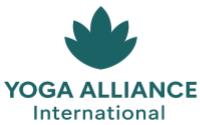Recognition for Yoga Teachers and Schools Based on Skills, Experience, and Training — Not Bureaucracy.
Yoga Teacher Registration or Certification? Which One Matters Most?
Yoga continues to expand across North America and worldwide. More people are exploring yoga teacher training each year. Once someone completes training, a big question always arises. Should a new teacher focus on registration or certification? Many people confuse the two terms. Some think they are the same. Others assume one matters more than the other. The truth is more complex. Understanding the difference helps teachers decide the right step for their path. The choice can affect job opportunities, professional reputation, and long-term credibility.
Certification and registration both play roles in yoga. They serve different purposes and are managed by different organizations. Certification confirms that you completed a teacher training course. Registration adds your name to a professional directory or registry. Both options connect to credibility, but in distinct ways.
This blog explores the meaning of each. It explains their differences and their impact on a teaching career. By the end, you will clearly understand which path supports your personal goals. You will also know how the latest Google updates shape what potential students see online.
Understanding Yoga Teacher Certification
Yoga teacher certification is the foundation of professional teaching. Certification proves that a person completed a structured yoga teacher training course. These programs usually last 200 hours or more. Some go up to 500 hours. Certification is granted by the school or training provider. It acts as evidence that the person studied yoga, completed exams, and met standards.
Certification is important because it shows competency. Many studios and gyms want teachers with proof of formal training. Without certification, it can be difficult to gain credibility. Certification programs teach anatomy, philosophy, teaching methodology, and safe practice. They also cover ethics, adjustments, and class sequencing. This learning prepares teachers to lead safe and effective yoga classes.
Different schools issue certifications with different names. Some call it a 200-Hour Yoga Teacher Certificate. Others call it a Certificate in Yoga Teaching. The name varies, but the purpose is the same. The certificate is proof of study. It is a legal document issued by the school or training center.
Certification does not require ongoing fees. Once you earn it, you keep it for life. However, many teachers pursue continuing education. They may complete advanced certifications. They may also join workshops to update skills. Certification creates a solid base for a professional career. Without it, most teachers cannot begin teaching in formal settings.
Understanding Yoga Teacher Registration
Registration is different from certification. Registration means your name appears in a yoga teacher directory. These directories are often managed by yoga alliances or organizations. Examples include Yoga Alliance in the United States or Yoga Alliance Canada. Registration requires proof of certification. Once you show your certificate, the organization adds your name to their registry.
Registration is not legally required. No law demands a yoga teacher be registered. However, registration provides extra credibility. It tells employers and students that the teacher meets certain standards. Many yoga alliances require annual fees. These fees keep a teacher’s profile active. Registration may also require continuing education. Teachers often need to log training hours every three years.
Being registered can increase opportunities. Studios often search registered directories for new hires. Students may look at registries to find trustworthy teachers. Some yoga insurance providers also request registration. This gives teachers protection in case of liability issues.
Registration creates a professional identity. It shows that the teacher belongs to a wider yoga community. Many alliances provide benefits. These may include discounts, resources, and networking. Registration is not the same as certification, but it often builds on it. Without certification, registration is not possible. Certification comes first, then registration becomes an option.
Certification vs Registration: Key Differences
Certification and registration are often confused, but they differ in important ways. Certification is proof of training. Registration is proof of professional recognition. Certification comes from a school. Registration comes from an outside organization.
Certification lasts forever. Once you finish training, the certificate is yours for life. Registration usually requires renewal. Most alliances ask for annual fees. Certification does not expire. Registration can lapse if you do not renew.
Certification demonstrates education. Registration demonstrates community and standards. Certification prepares you to teach. Registration shows you are connected to a broader system. Certification does not require fees. Registration often does. Certification is the first step. Registration is optional, but valuable.
Many teachers wonder which matters more. The answer depends on goals. If you want to teach in gyms or studios, certification is essential. Most employers will not hire you without it. If you want to expand your reputation, registration helps. It gives extra visibility and trust. Both paths matter, but certification comes first.
The two terms work together. Certification creates the foundation. Registration strengthens professional credibility. Teachers who want long careers often use both. Those who want independence may rely only on certification.
Why Certification Matters for New Teachers
For new teachers, certification matters most. It provides the skills and knowledge needed to teach. Without certification, you lack formal recognition of training. Certification shows you studied yoga with a structured approach. It ensures that your teaching meets safety standards.
Certification is often required for insurance. In many countries, you cannot get teaching insurance without it. Certification also supports visa applications for teaching abroad. Some schools and studios abroad will only hire certified teachers. Certification ensures mobility and career flexibility.
Certification also builds confidence. A certificate shows you completed exams and assessments. It proves you can manage classes, guide students, and handle injuries. It assures employers that you are prepared. Certification also reassures students. They want to know their teacher has completed training.
For new teachers, certification is a launch pad. It allows you to start teaching classes. It helps you join local studios. It also helps you begin private sessions. Certification creates trust with students, employers, and peers. Without it, your teaching may not be taken seriously.
Why Registration Matters for Long-Term Growth
Registration becomes important once you are established. It expands your credibility beyond certification. It shows ongoing commitment to professional standards. Many alliances require continuing education. This ensures teachers keep learning. Registration signals dedication to growth.
Registration helps with networking. Many alliances offer conferences and workshops. Teachers can meet peers, mentors, and students. Registration also provides exposure. Being listed in a public directory increases visibility. Students searching online may find you more easily.
Registration also supports career advancement. Studios often prefer registered teachers. Retreat centers and corporate programs may also require it. Some insurance companies give better rates to registered teachers. Registration strengthens professional identity.
Registration also helps with international opportunities. Some countries respect alliance registries. Being listed makes global teaching easier. Registration also gives credibility when starting your own school. If you want to train future teachers, registration may be required.
Registration is not necessary for everyone. Some teachers prefer independence. They avoid the fees and requirements. But for long-term growth, registration adds many benefits. It demonstrates professionalism and connection.
Which One Should You Choose?
The choice depends on your goals. Certification is mandatory for teaching. Without it, you cannot start. Registration is optional but powerful. It adds visibility, credibility, and opportunities.
If you want to teach part-time, certification may be enough. Many teachers work in gyms or small studios. They rely on certification alone. If you want to grow into a career, registration helps. It gives you professional support and recognition.
Some teachers choose both. They start with certification. Then they register to gain more visibility. This is the most balanced approach. Others decide registration is not worth the fees. They build careers based on certification and word-of-mouth.
There is no single answer. Each teacher must decide what fits their path. Certification gives you a foundation. Registration gives you growth. Together, they create a full professional profile.
Conclusion: Do You Need Yoga Teacher Registration or Certification? Which One Matters Most?
Certification and registration are not the same. Certification is proof of education. Registration is proof of recognition. Certification prepares you to teach. Registration supports long-term credibility.
Every teacher must start with certification. It is the minimum requirement. Registration adds professional visibility, networking, and credibility. Some teachers prefer independence and skip registration. Others embrace it for growth. Both paths are valid.
The choice depends on your goals. If you want to teach locally, certification may be enough. If you want wider recognition, registration adds value. Most successful teachers use both. Together, certification and registration build strong, lasting yoga careers.


